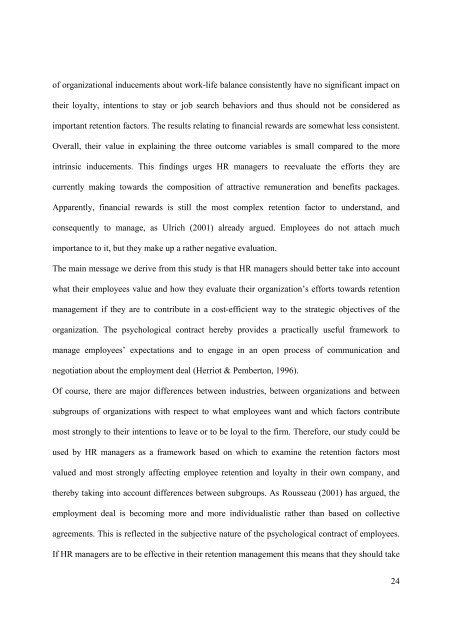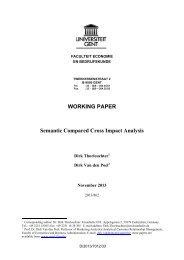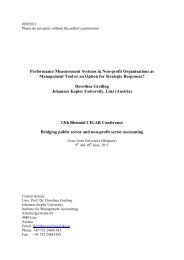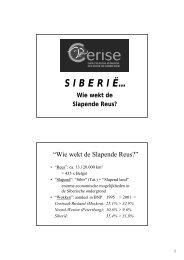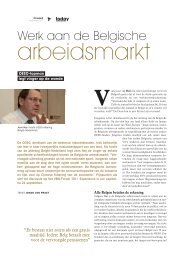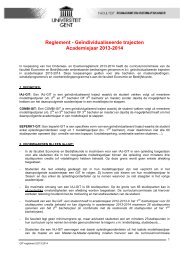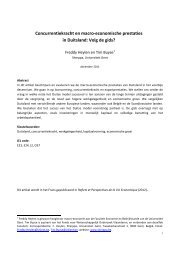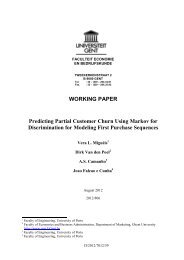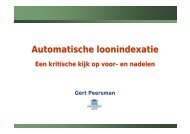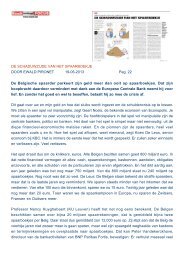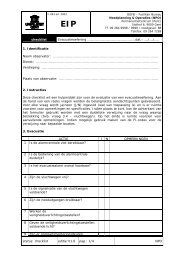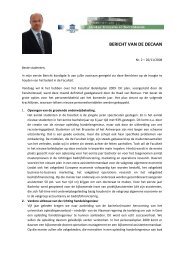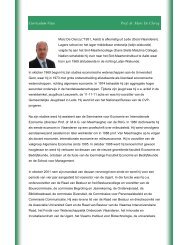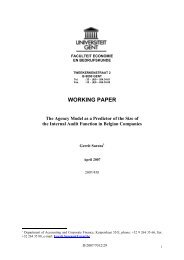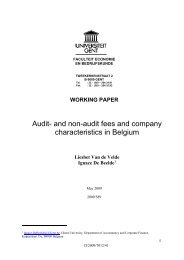WORKING PAPER - Faculteit Economie en Bedrijfskunde
WORKING PAPER - Faculteit Economie en Bedrijfskunde
WORKING PAPER - Faculteit Economie en Bedrijfskunde
Create successful ePaper yourself
Turn your PDF publications into a flip-book with our unique Google optimized e-Paper software.
of organizational inducem<strong>en</strong>ts about work-life balance consist<strong>en</strong>tly have no significant impact on<br />
their loyalty, int<strong>en</strong>tions to stay or job search behaviors and thus should not be considered as<br />
important ret<strong>en</strong>tion factors. The results relating to financial rewards are somewhat less consist<strong>en</strong>t.<br />
Overall, their value in explaining the three outcome variables is small compared to the more<br />
intrinsic inducem<strong>en</strong>ts. This findings urges HR managers to reevaluate the efforts they are<br />
curr<strong>en</strong>tly making towards the composition of attractive remuneration and b<strong>en</strong>efits packages.<br />
Appar<strong>en</strong>tly, financial rewards is still the most complex ret<strong>en</strong>tion factor to understand, and<br />
consequ<strong>en</strong>tly to manage, as Ulrich (2001) already argued. Employees do not attach much<br />
importance to it, but they make up a rather negative evaluation.<br />
The main message we derive from this study is that HR managers should better take into account<br />
what their employees value and how they evaluate their organization’s efforts towards ret<strong>en</strong>tion<br />
managem<strong>en</strong>t if they are to contribute in a cost-effici<strong>en</strong>t way to the strategic objectives of the<br />
organization. The psychological contract hereby provides a practically useful framework to<br />
manage employees’ expectations and to <strong>en</strong>gage in an op<strong>en</strong> process of communication and<br />
negotiation about the employm<strong>en</strong>t deal (Herriot & Pemberton, 1996).<br />
Of course, there are major differ<strong>en</strong>ces betwe<strong>en</strong> industries, betwe<strong>en</strong> organizations and betwe<strong>en</strong><br />
subgroups of organizations with respect to what employees want and which factors contribute<br />
most strongly to their int<strong>en</strong>tions to leave or to be loyal to the firm. Therefore, our study could be<br />
used by HR managers as a framework based on which to examine the ret<strong>en</strong>tion factors most<br />
valued and most strongly affecting employee ret<strong>en</strong>tion and loyalty in their own company, and<br />
thereby taking into account differ<strong>en</strong>ces betwe<strong>en</strong> subgroups. As Rousseau (2001) has argued, the<br />
employm<strong>en</strong>t deal is becoming more and more individualistic rather than based on collective<br />
agreem<strong>en</strong>ts. This is reflected in the subjective nature of the psychological contract of employees.<br />
If HR managers are to be effective in their ret<strong>en</strong>tion managem<strong>en</strong>t this means that they should take<br />
24


